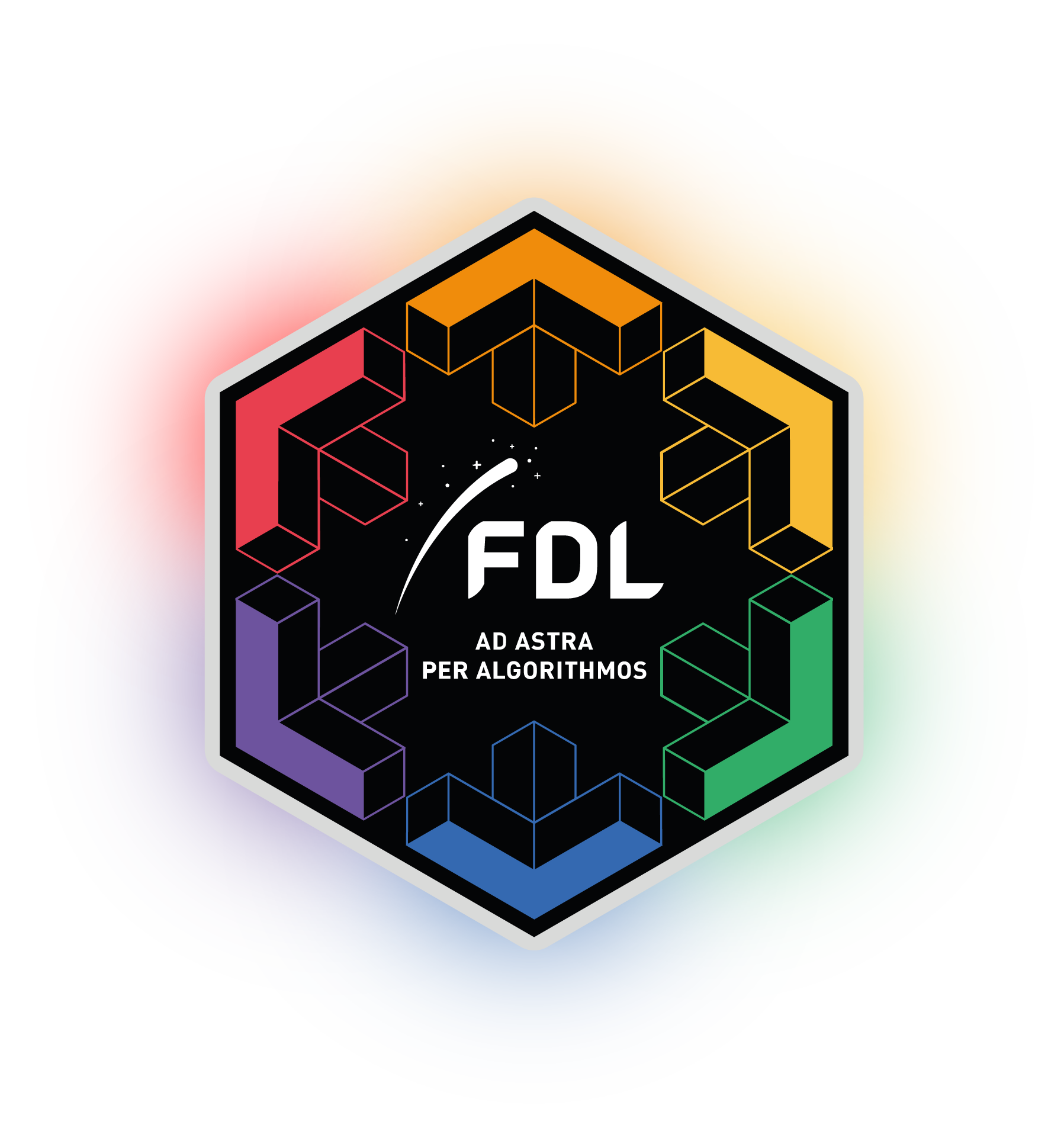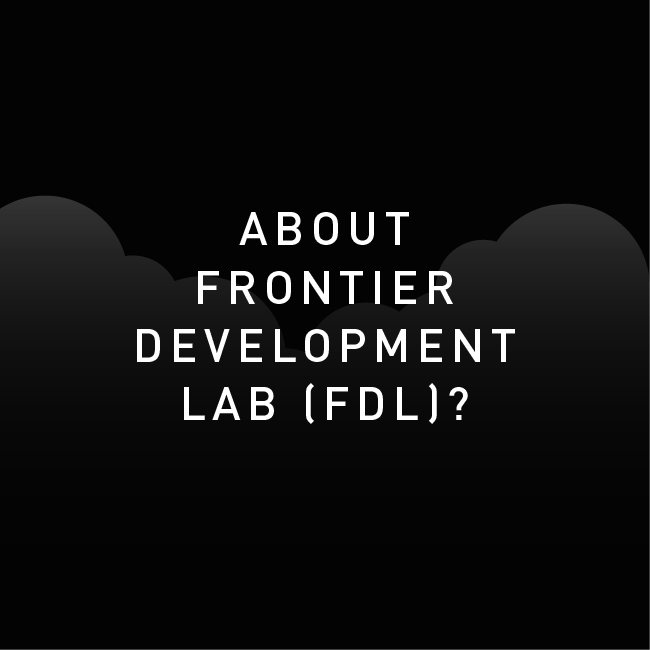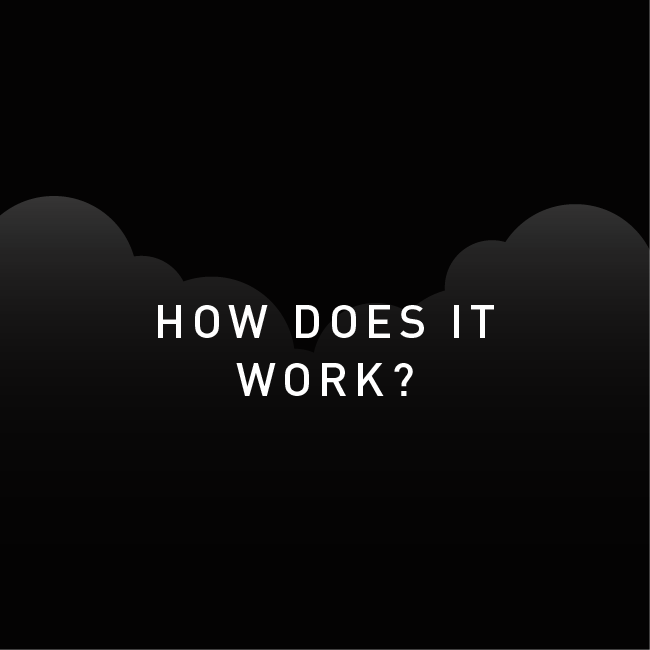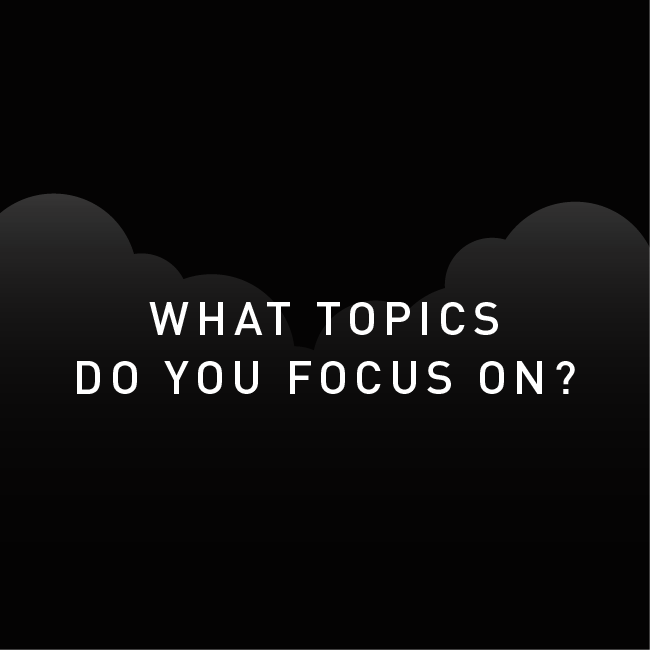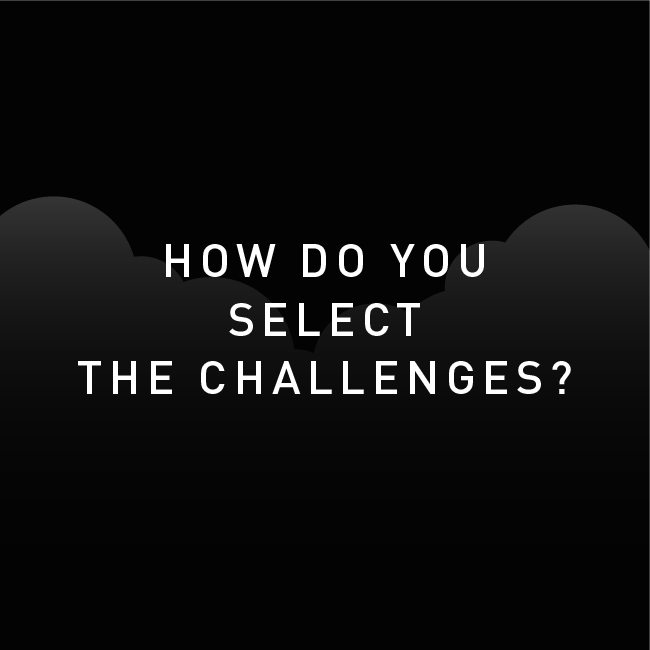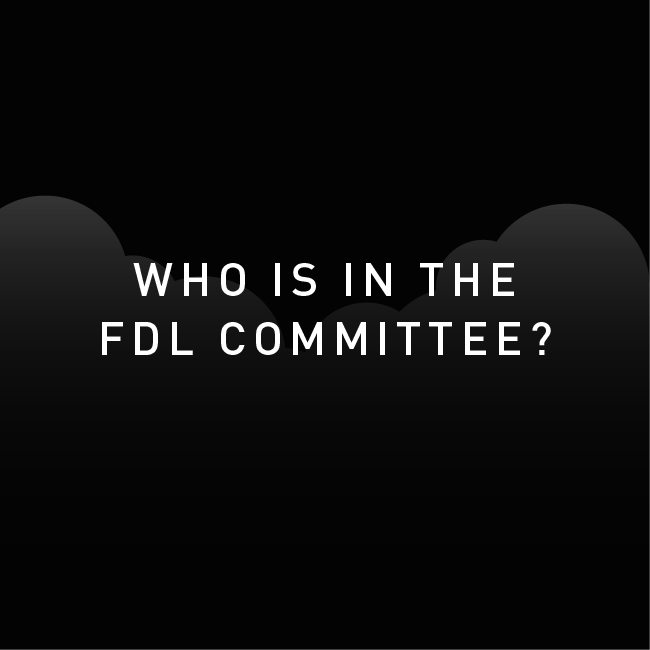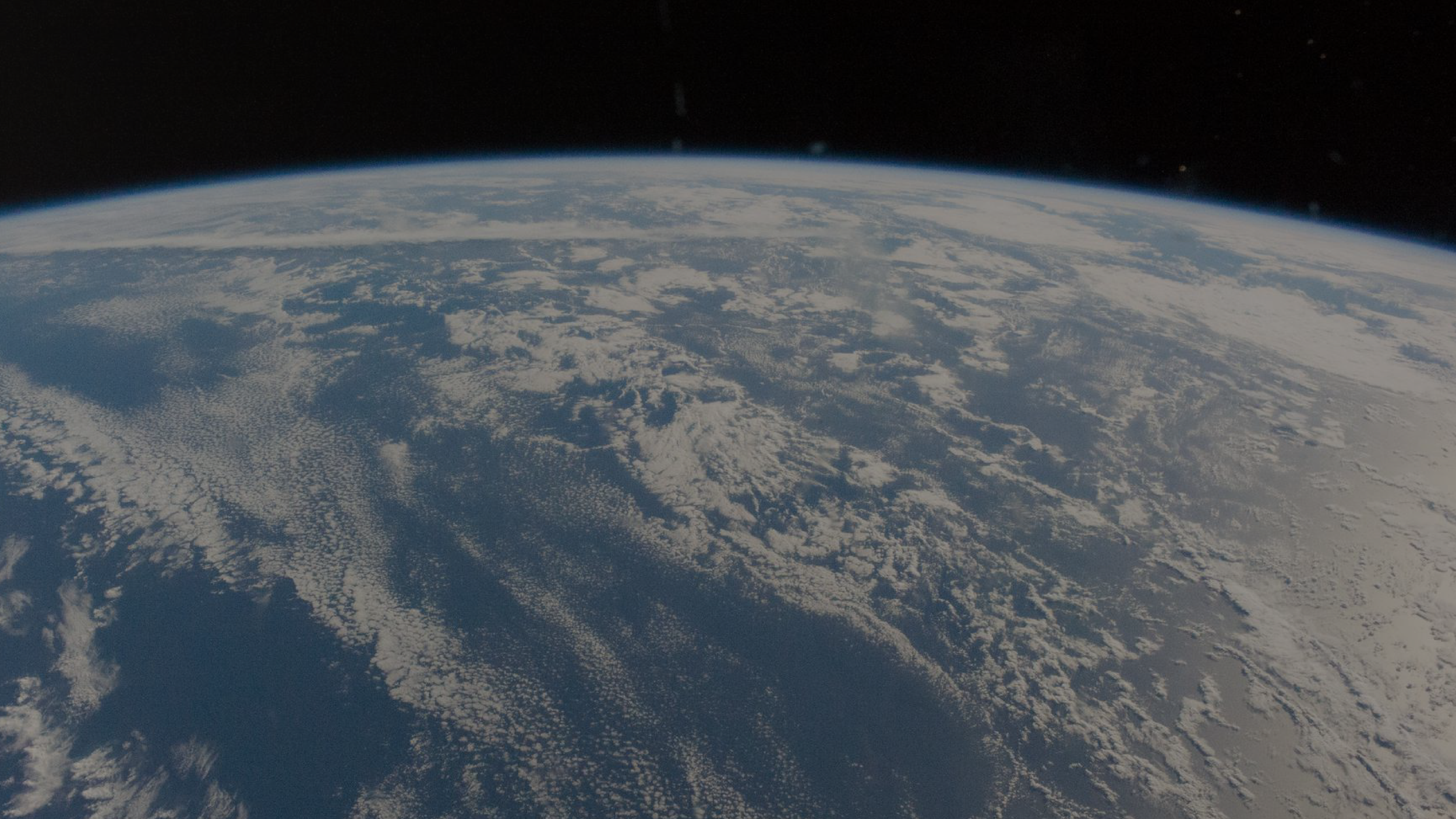
ABOUT
FRONTIER DEVELOPMENT LAB
(FDL)
AI for Science for all humankind
FDL.AI is a public-private partnership AI research initiative with NASA, Google Cloud and Nvidia and other leading research organizations in the USA.
FDL.AI brings together some of the brightest minds from space science, Earth science, academia and the commercial sector. We’re extremely grateful for the continued support from NASA HQ, NASA ARC, NASA MSFC, NASA Goddard and NASA JPL as well as DOE’s Artificial Intelligence and Technology Office(AITO), USGS and our commercial AI partners Google Cloud, Nvidia, Intel, USGS, Luxembourg Space Agency, Lockheed Martin, Pasteur Labs & Institute for Simulation Intelligence and Planet.
Our focus is interdisciplinary Phd and Postdoc applied artificial intelligence research for space exploration, planetary stewardship and exploration medicine. FDL.AI’s primary purpose is to advance the application of machine learning technologies, data science and high performance computing to push the frontiers of high-risk / high reward applied research and develop new cutting edge ML/AI tools and data products on behalf of our Federal stakeholders.
For the past eight years we have been leveraging space and Earth data to accelerate new discoveries, tackling challenges developed in consultation with subject matter experts to understand the problem, but also specialists in AI to understand “what’s possible” - such as methods for predicting natural phenomena, discerning new physical insights, improving decisions, making better predictions and planning strategies within complex systems.
These challenges are put through vigorous assessments to ensure they meet important success criteria, such as standards for AI readiness, reproducibility and ethical best practices in AI. We take great care in recruiting interdisciplinary teams of science and domain experts, PhDs and Postdocs to surround each challenge, and then we support each challenge team through an accelerated research process, with huge compute resources provided by Google Cloud and Nvidia, allowing teams to think and act boldly and ultimately deliver world class research for all Humankind.
FDL.AI has a sister lab with ESA and Oxford in Europe. (Fdleurope.org)
“FDL.AI has established an impressive success rate for applied AI research output at an exceptional pace. Research outcomes are regularly accepted to respected journals, presented at scientific conferences (in both AI and science domains) have been featured in multiple media outlets. FDL.AI’s AI pipelines have been deployed on NASA, USGS, ESA and DOE initiatives - and in space.”
Selected Research FiRSTS
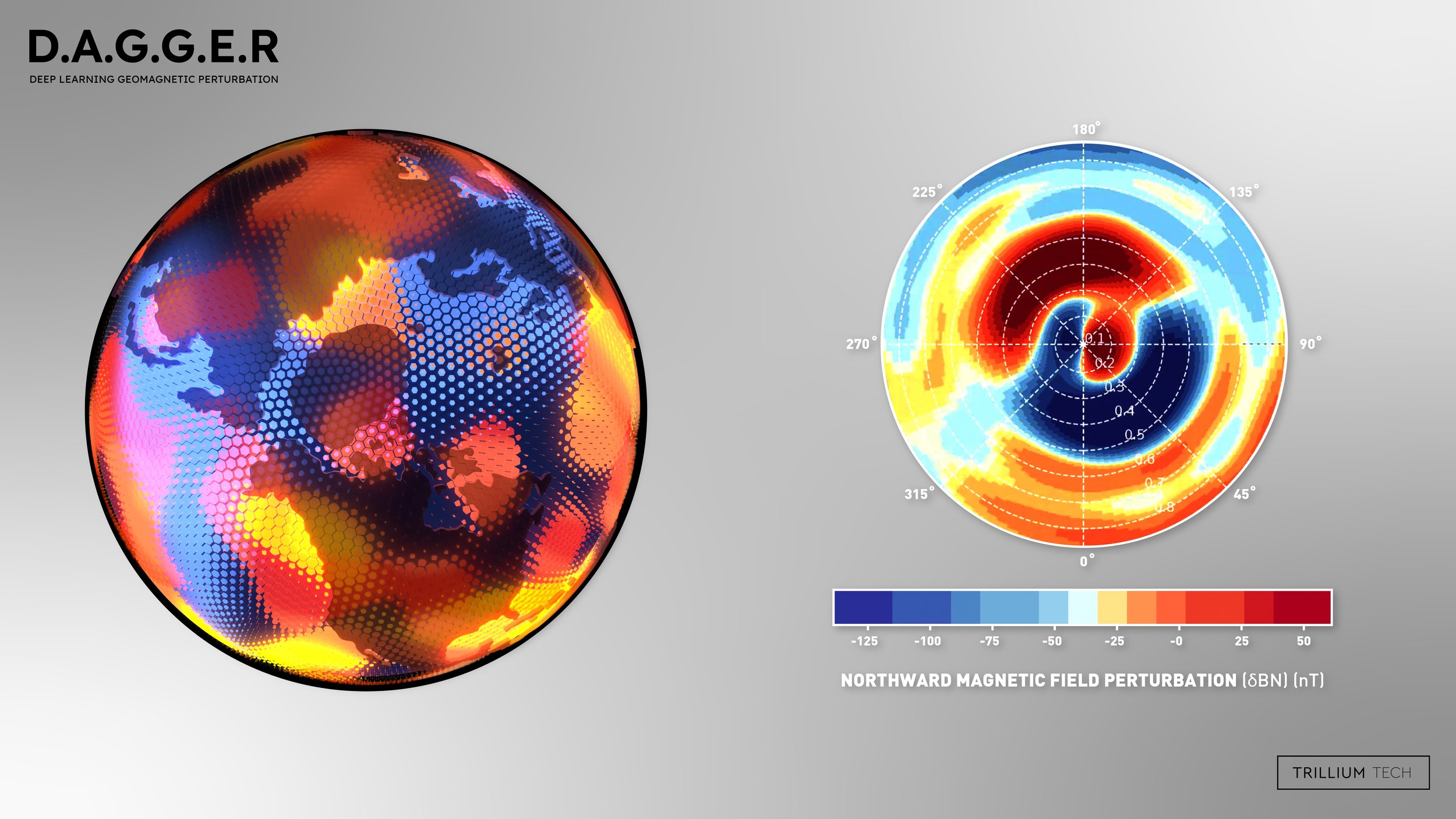
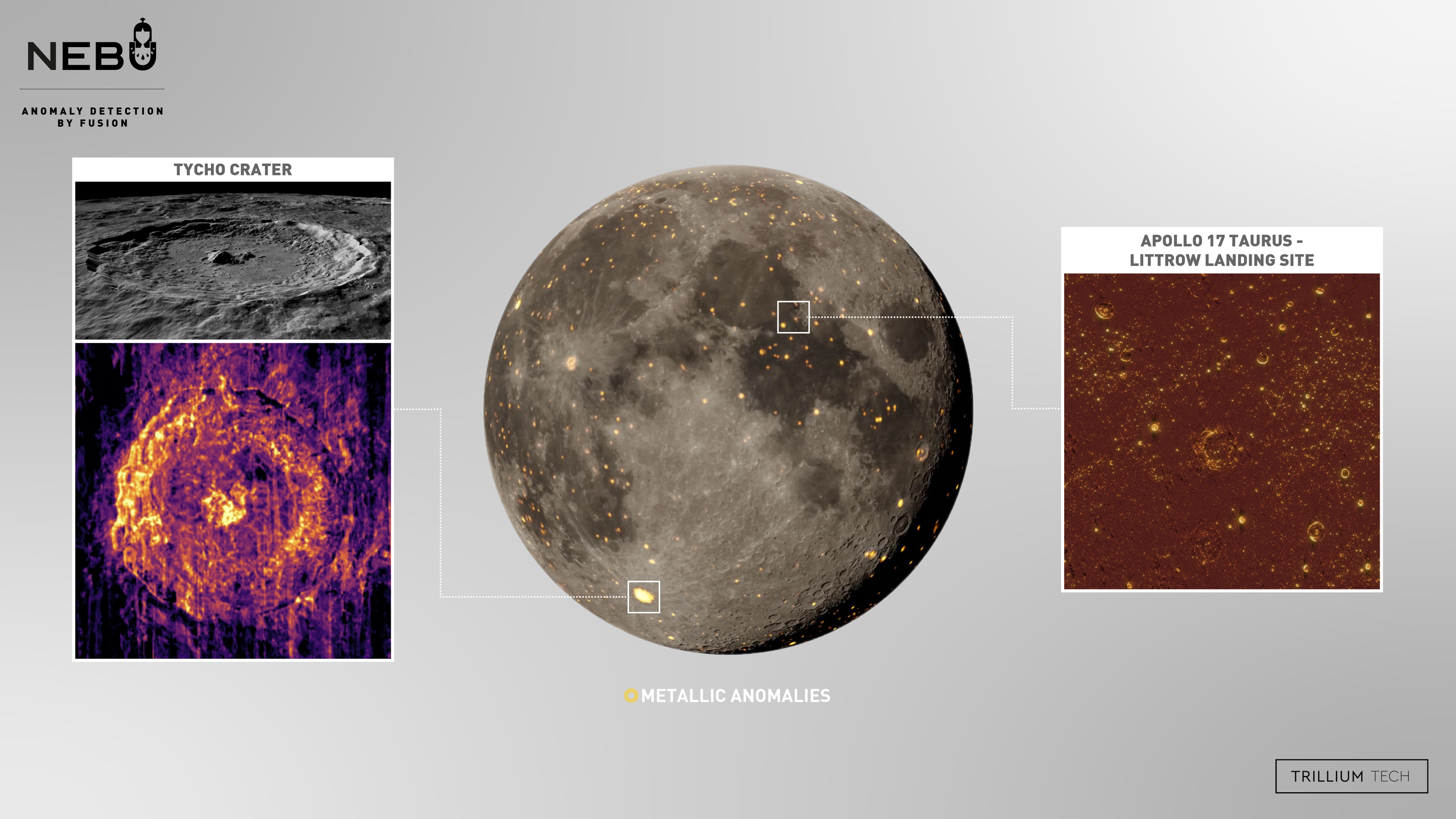
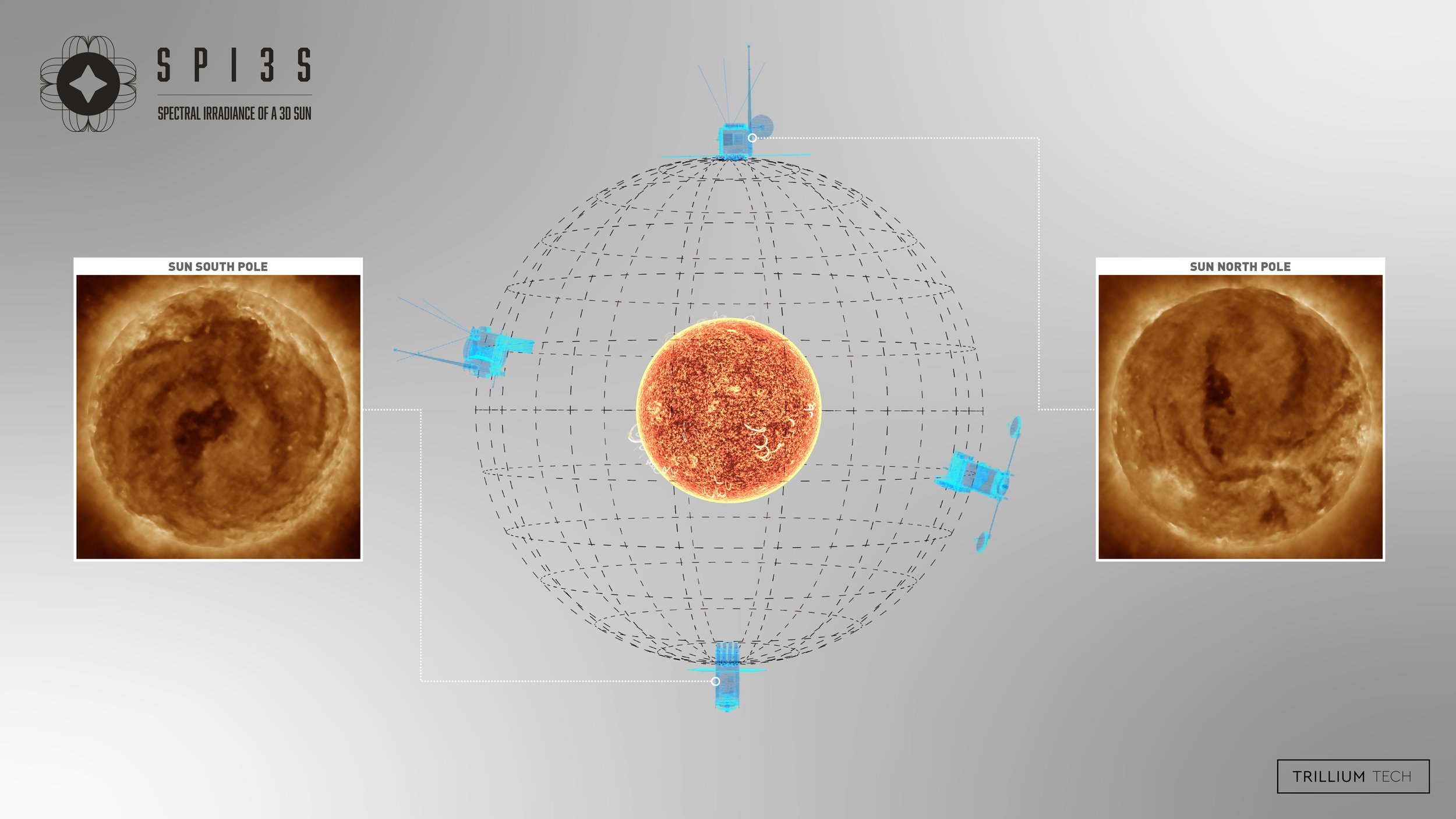
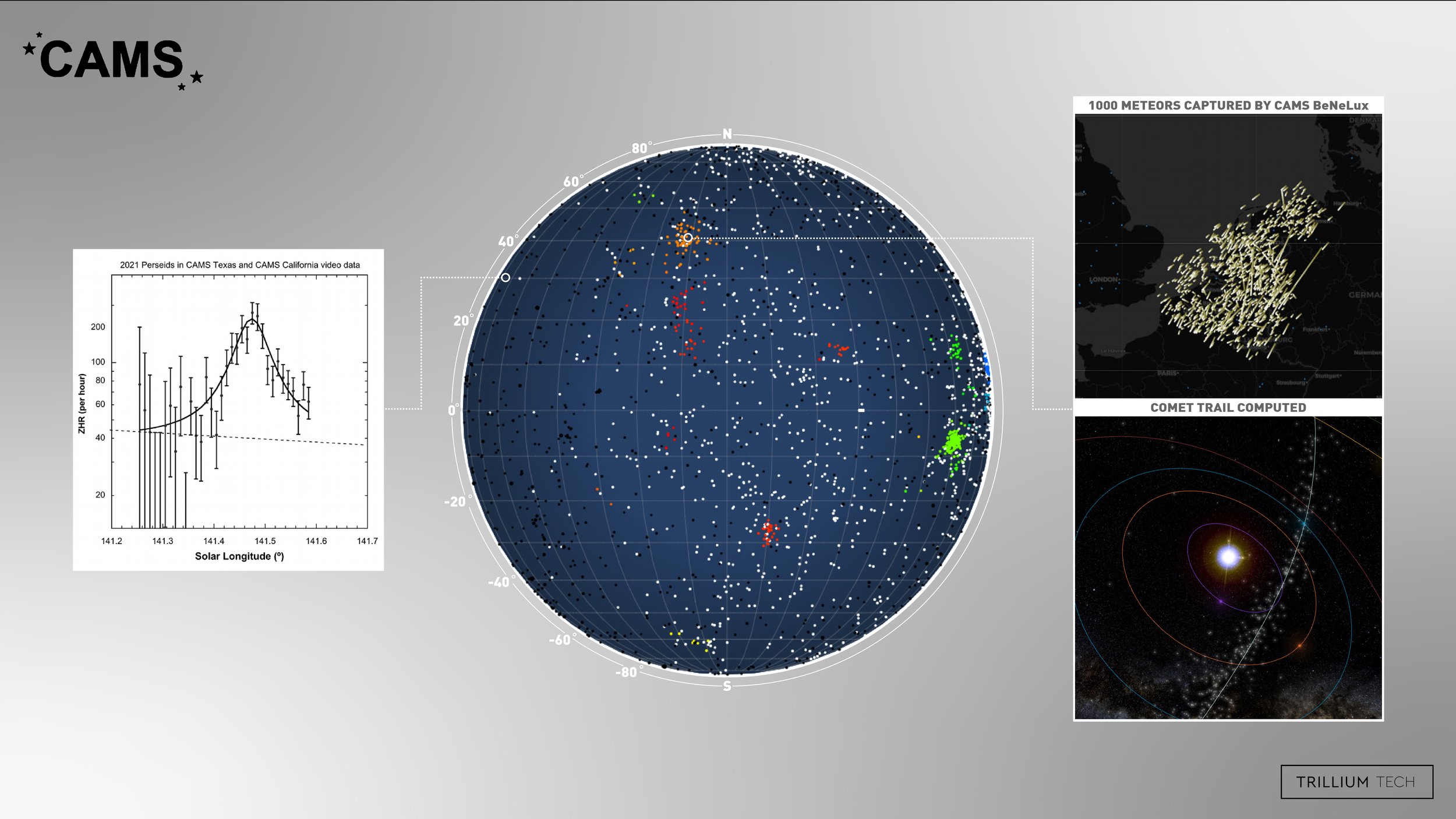
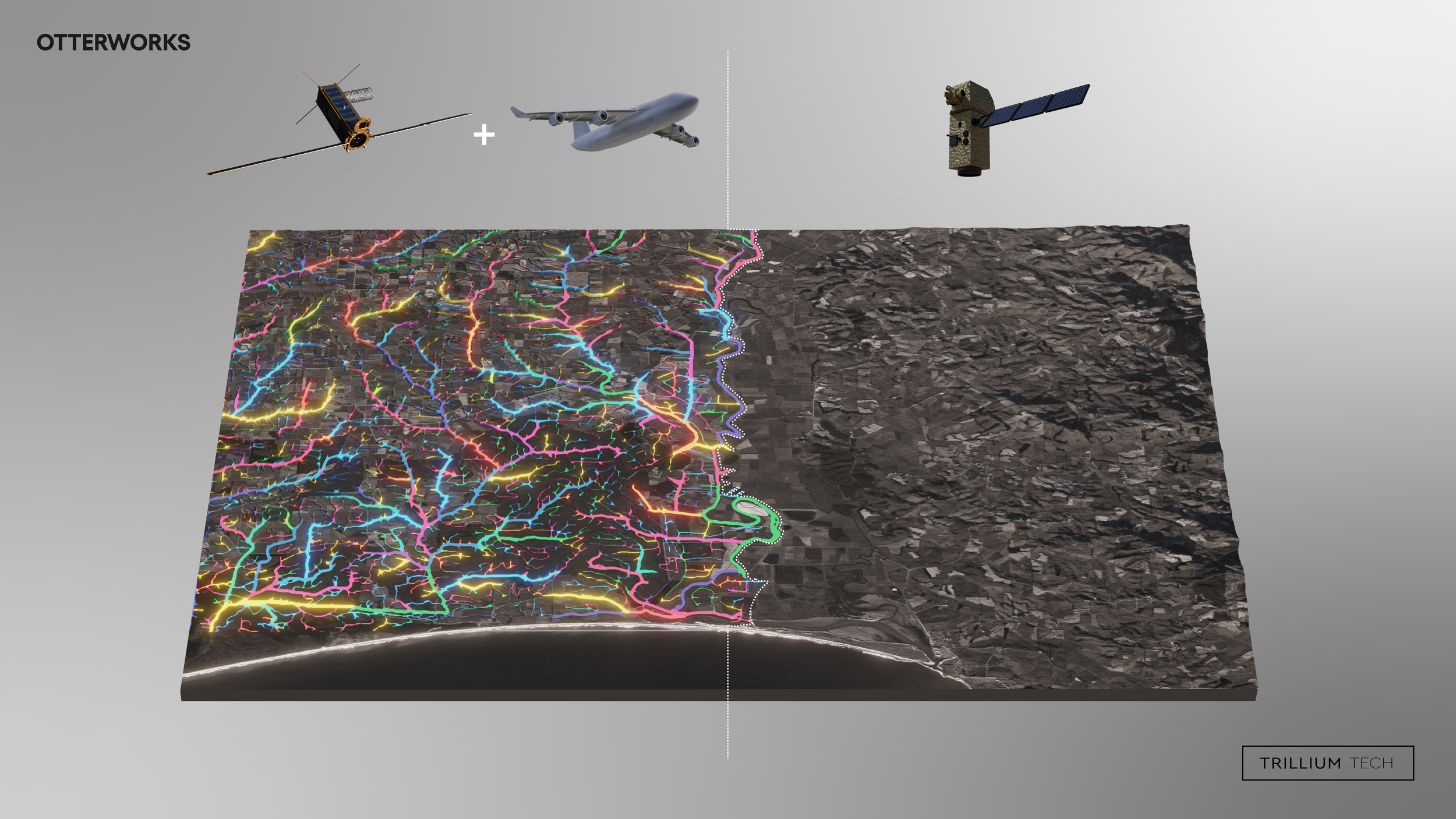
FDL.AI is an interdisciplinary Phd and Postdoc level applied artificial intelligence research program: A year-long cycle focused on a 8-9 week research sprint. The central value is that subject experts - with deep knowledge of the problem domain, can develop AI enhanced work-flows and solutions with peers from the data sciences. The format’s emphasis on rapid iteration and prototyping, supported by compute from partners such as Google Cloud and Nvidia ensures a high success rate.
How does FDL work?
FDL.AI tackles knowledge gaps in space science by pairing machine learning experts with researchers in Earth science, climate and energy, heliophysics, astrobiology, exploration medicine and planetary science for an intensive research sprint, held from June - August each year. Although the journey is a year long cycle: from challenge definition through to finished result (Tech Memo and trained algorithm and data products) takes 12 months.
Interdisciplinary four-person teams of PhD and postdoc level researchers and a faculty of domain and ML experts address tightly defined science challenges which are informed by knowledge of “what’s possible in ML”. The faculty, who are subject matter experts, provide support to the teams and drive research quality and push to more ambitious solutions. External and partner experts, special guests, and reviewers from space agency stakeholders contribute to the understanding of the problem and provide a community of expertise that drives excellence.
FDL.AI’s format encourages rapid iteration and prototyping to create outputs with meaningful application, with substantial compute resources provided by our commercial partners. This combination of curated challenges, close mentorship, community of expertise and an emphasis on rapid prototyping has ensured a high success rate for research outcomes.
As such, FDL.AI has demonstrated how structured interdisciplinary problem solving, radical collaboration methods and partnering with commercial organizations with relevant expertise can be useful to the science and technology goals of NASA, the DOE and ESA.
The special sauce is its interdisciplinary research teams and how they work. Each challenge team consists of 4 researchers working closely with two world-class team leads or “faculty” in the field science and AI. The emphasis is on tailored teams, rapid iteration and culture of prototyping ensures a high success rate.
What research areas dOES FDL.AI focus on?
FDL.AI’s research covers challenges in the following mission areas: Planetary Defence, Planetary Science, Heliophysics, Disaster Management, Earth Science, Astrophysics, Astronaut Health, Climate Adaptation and Resilience and Energy Futures.
How ARE challenges SELECTED?
In order to ensure that we are tackling questions that have the potential to have a real-world impact, we have developed close links with scientists, researchers, industry and humanitarian organizations. We invite our partners and network to the “Big Think”, where they can share their thoughts on the latest developments in their fields, issues that need attention, as well as network with other members of the community. The Big Think meetings take place at the start of the year in the USA and Europe, and provide the initial ideas for challenges, data-sets and resources.
Following the Big Think, we invite key partners and experts to help us distill these ideas into distinct challenge questions to be approved by NASA, DOE or USGS stakeholders from where the teams are then tailored to tackle the problems.
How can I get involved with FDL.ai?
Apply as a researcher and take part in the our research sprint
Register your interest to join the FDL.AI faculty team
Share your datasets
Become an FDL.AI partner organization
FDL.AI management committEE
James Parr | FDL.AI Director, Trillium Technologies
Anne Spalding | FDL.AI Program Director, Trillium
Jonathan Knowles | FDL.AI Exploration Director, Trillium
Jodie Hughes | FDL.AI HR & Operations Director, Trillium
Leo Silverberg | FDL.AI Digital Designer, Trillium Technologies
Lika Guhathakurta | FDL.AI Lead, NASA HQ
Irina Kitiashvili | NASA ARC Lead
Hyunju Connor | NASA Goddard Lead
Mike Little | NASA HQ
FDL.AI Technical Committee
Yarin Gal | University of Oxford [Co-chair]
Chedy Raissi | Ubisoft [Co-chair]
Atilim Gunes Baydin | University of Oxford
Massimo Mascaro | Google Cloud
Francois Chollet | Google
Alison Lowndes | Nvidia
Siddha Ganju | Nvidia
Ian Goodfellow | Google DeepMind
Alex Lavin | Institute for Simulation Intelligence
Mark Cheung| CSIRO
Amir Khosrowshahi | Intel
Naeem Altaf | IBM
Greg Renard | XBrain
FDL.ai Science Committee
Jessie Dotson | NASA AMES
J.L. Galache | NASA
John Karcz | NASA HQ
Sangram Ganguly | NASA AMES
Phil Metzger | UCF
Mark Cheung | CSIRO
Mark Doherty | ESA
Dietmar Backes | University of Luxembourg
FDL.AI’s Research Formats
Let’s build an intelligent future
Over the past 8 years, we have developed a range of interdisciplinary approaches to tackling AI research challenges across the TRL (Tech Readiness Level) spectrum.
Key formats used in FDL.AI:
BIG THINK
FDL.AI VIRTUAL SPRINT
FDL-X
FDL.AI+
To read more about FDL.AI’s research formats, please visit trillium.tech

